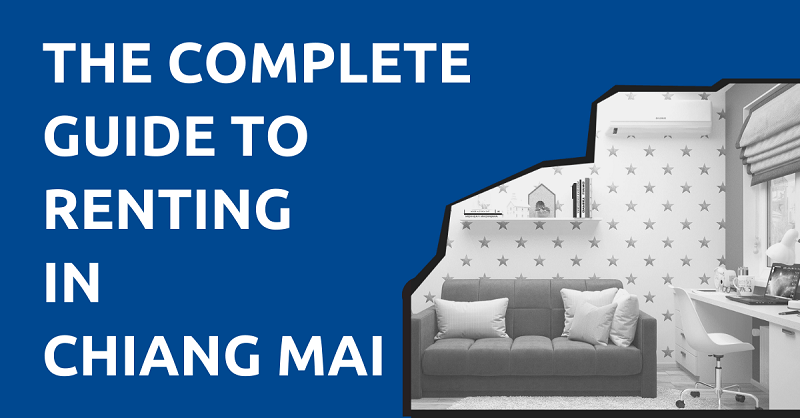
It only took a few days for me to fall in love with Chiang Mai when I first arrived here. But then I had to solve the problem of finding a place to rent.
This can be challenging if you’re brand new to the province.
I had the advantage of staying with my brother who was also living here, and that helped in the beginning. Nowadays, I work for a real estate company in Chiang Mai, which has helped me learn even more about the area and its rental market.
By the end of this guide, you’ll find out how to rent a house or condo in Chiang Mai, whether you’re coming here alone, as a couple, or with a family. You’ll discover where to look, how much to budget for, and some of the legal issues you’re likely to come across.
"*" indicates required fields
Disclaimer: This article may include links to products or services offered by ExpatDen’s partners, which give us commissions when you click on them. Although this may influence how they appear in the text, we only recommend solutions that we would use in your situation. Read more in our Advertising Disclosure.
Contents
Key Takeaways
- The five popular areas for expat to rent in Chiang Mai include the city center, Hang Dong, San Kamphaeng, Doi Saket and Mae Jo, and Mae Rim.
- Rent in Chiang Mai generally starts at THB6,000 for a basic studio and goes up into the tens of thousands per month for a large house.
- You can use a real estate agent, Facebook group, property websites, or walk around to find rentals in Chiang Mai.
- Chiang Mai is home to some great international schools, hospitals, and more.
Why Rent in Chiang Mai?
Chiang Mai is the second largest province in Thailand. The province is also home to the city of Chiang Mai, the largest city in northern Thailand. Chiang Mai city has a vibrant real estate market and offers easy access to the province’s countryside.
If you love the outdoors, you’ll never get bored in Chiang Mai. The food and local culture is also very different from that of Bangkok. For these reasons, many expats move to Chiang Mai.
Culture
Chiang Mai has a different culture than Bangkok. The people are more laid back (think sabai-sabai) toward business and life. In Chiang Mai, time doesn’t run by clocks, but rather by the seasons.
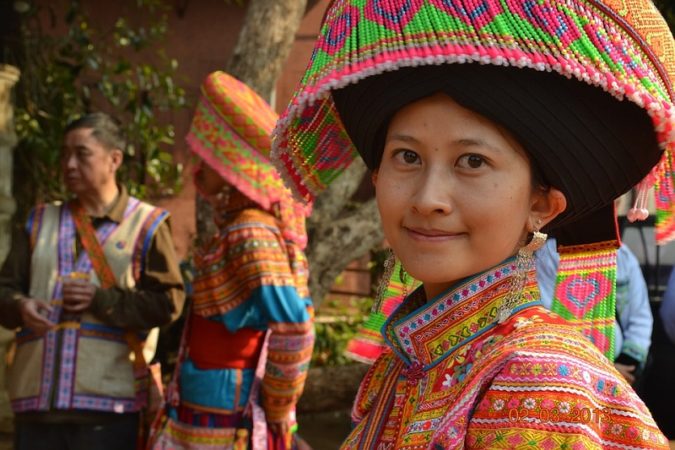
This includes saving face and not causing any trouble as a client. Noise issues can arise with the onset of construction or the opening of a nightclub.
These ultimately can be dealt with by moving to another part of Chiang Mai. Litigation as a foreigner who is living in rental accommodations is not a strong basis for launching legal action in Thailand.
At all times you should respect the culture of Thailand.
Traditions
Songkran is one of the biggest traditional holidays in Chiang Mai. In April of each year, you’ll find thousands of people throwing water at each other. You can join in on the fun, but if you don’t want to get wet then you’ll have to lock yourself in your home for three days. Loy Kratong is also another major traditional holiday when people send small rafts with incense into the water as a symbol for releasing bad things from their lives.
Food
Chiang Mai is home to some of the best northern food in Thailand, including gaeng hang lay (braised pork), khao soy (chicken noodle soup), sai ua (sausage), and much more. You could live here for years and find something new to eat or snack on all the time. And if you do ever get the craving for other kinds of food, the city has plenty of authentic international restaurants.
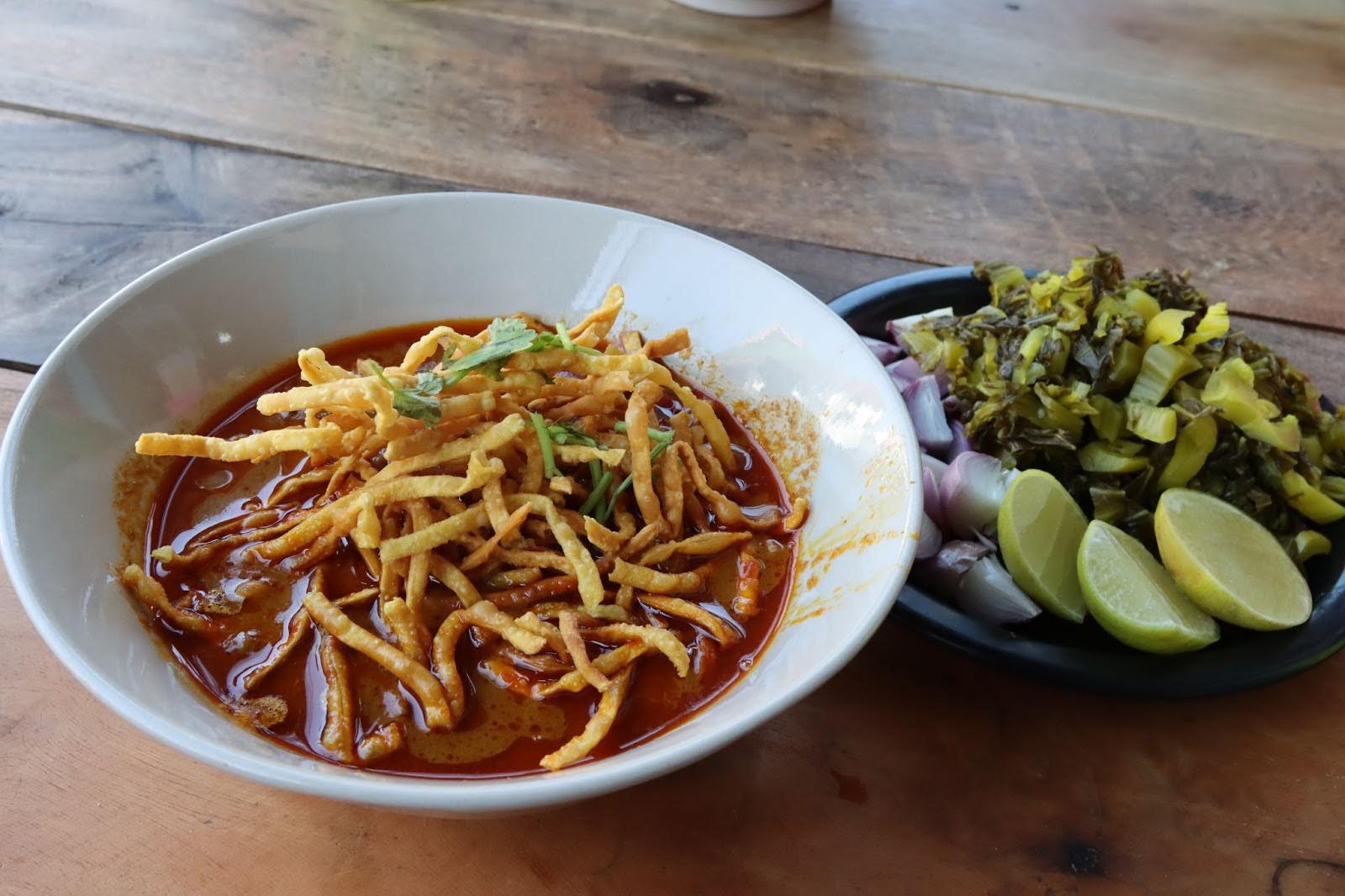
Lifestyle
The lifestyle in Chiang Mai tends to be much more laid back than that of Bangkok. You won’t find people rushing around the streets. Outside of the city center, traffic is rarely an issue. The pace of life is just much slower here.
Challenges of Renting in Chiang Mai
For all that Chiang Mai has to offer expats looking for a more laid back lifestyle, the area does have some drawbacks.
Burning Season and PM 2.5
The one big problem that everyone in Chiang Mai faces is the burning season from roughly January to April. Farmers practice the “slash and burn” method of clearing out old crops to make way for new ones. Also, forest fires tend to rage during this time as well. Because of this, unhealthy levels of smoke linger over Chiang Mai. In fact, for these few months, Chiang Mai always makes the top-10 list of the world’s most polluted cities when it comes to air quality.
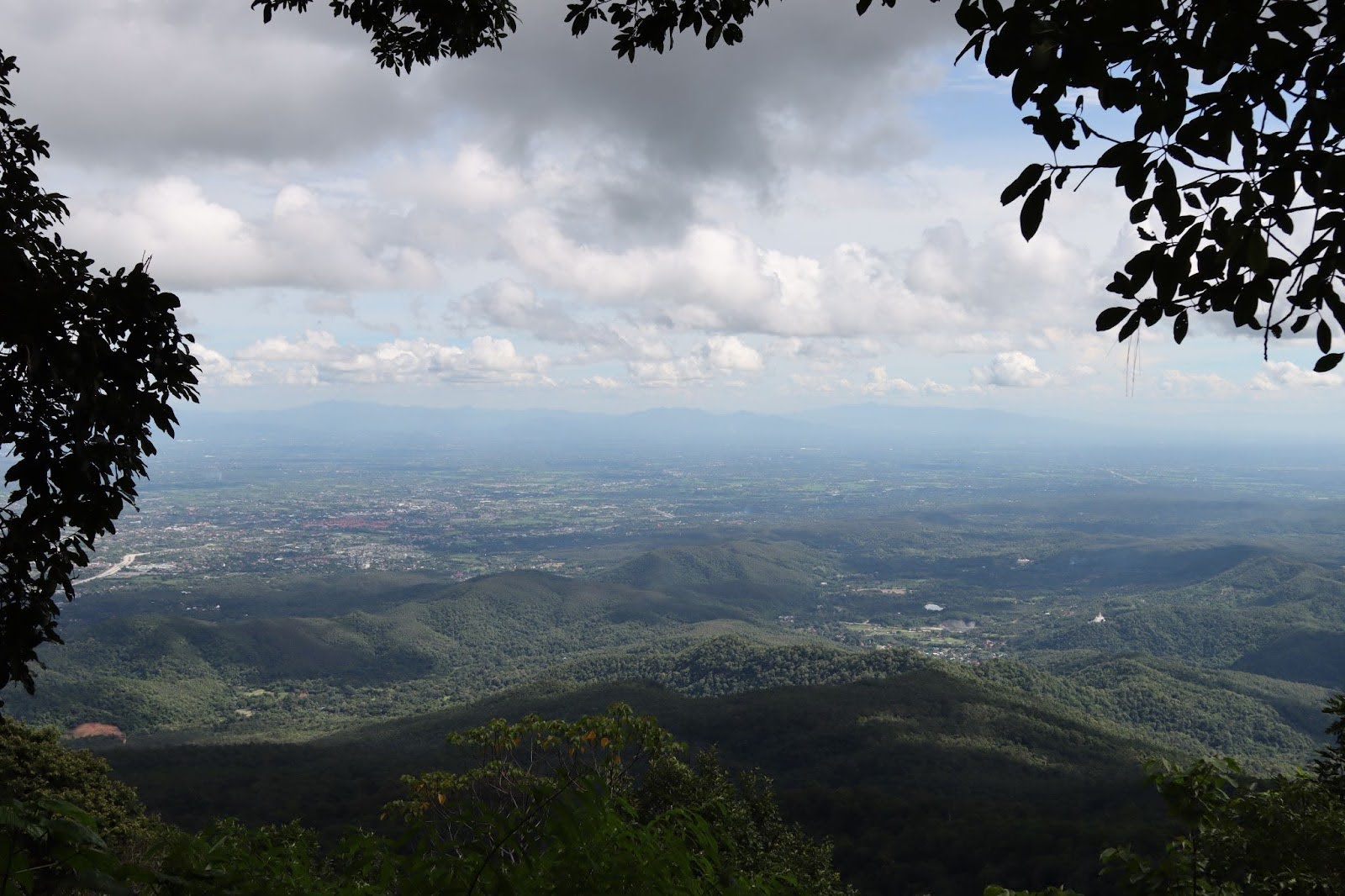
That said, living in Chiang Mai during this time is a challenge for locals and expats. Many locals that live and work in the province have no choice but to hunker down and wait it out. Some locals who operate businesses catered to tourists close down for a few months. And some expats who have the means to do so move to another part of the country until the air clears up.
What’s the big deal with the burning season you might ask? Breathing in PM 2.5 could cause long-term health issues. But it can even affect you in the short-term, especially if you’re sensitive to the environment, asthmatic, or have underlying cardiovascular diseases.
You can buy air filters that can clean the PM 2.5 from inside your home, and you can wear KN95 masks when outdoors. But most expats don’t move to Chiang Mai only to be trapped in their homes for three or four months a year. The issue with air quality in Chiang Mai from February to April is so bad that the Thai government is now stepping in to try and prevent farmers from burning crops.
That said, don’t let a few months of PM 2.5 discourage you from moving to Chiang Mai. As I said, if you move to another part of the country during this time and return after the air clears, you’ll find the province a great place to live.
Read more: The Complete Guide to Air Pollution in Bangkok: PM 2.5, Air Purifiers, Masks, and More
Overdevelopment
The city of Chiang Mai has been booming over the last 20 years, so it has slowly become less exotic than it used to be. Many people who live on the outskirts of the city want easy access to schools and shopping malls. So new roads are constantly being built. With those new roads come more stores, more residences, and more traffic.
Of course it gets quieter the further away from the city you get. So if you’re looking for a peaceful place to rent in, check one of the more rural areas mentioned in the section below on Where to Rent in Chiang Mai.
Language Barriers
Chiang Mai has a lot of tourism, so many Thais, especially in the city, can speak English. But it’s still a good idea to learn basic Thai, which helps you negotiate rent, communicate with your future landlord or property manager, and make everyday life easier in general. You’ll also hear the old Lanna dialect in Chiang Mai as part of everyday conversations. If you pick up a phrase or two, it will go a long way with the locals.
Read more: Learn Thai With ExpatDen
Accessibility
People with special needs might find themselves at a disadvantage if they wish to stay in Chiang Mai. You can make the assumption that older buildings won’t have suitable access for those who use wheelchairs. But if a building is less than 10 years old then it generally has ramps and wider doors. When looking for a place to rent, websites will almost never include this information, so it’s best to call or send a message to the owner or the real estate agent.
Want to overcome all these challenges and the many others that come with living in Thailand? Become a member of ExpatDen Premium. With immediate access to over a hundred exclusive guides, you’ll find out how to get a job, start a business, manage your finances, and make Thailand your new home.
Practical Tips
There are quite a few things you can do when looking for a place to rent in Chiang Mai so that it works out in your favor.
- Sign a lease during Chiang Mai’s burning season: During the burning season, property owners have such a hard time finding tenants that they often lower their rent. So, if you find a place and sign a lease during this time, you could lock in a lower rent than if you had signed when the air was clean.
- Set a budget: Every expat should sit down and set a budget on how much he or she can afford to rent in Chiang Mai. By doing this, you’ll save time because you can narrow down your online search to show only the properties in your price range.
- Inspect the rental unit and document everything: Before signing a lease or making a security deposit, always inspect the rental unit in person. If you’re happy with it, make a list of everything you come across worth noting, such as existing damage. Go over it with the landlord or property manager and have them note it in the lease.
- Consider how you’ll get around: Chiang Mai, even the city section, is nothing like Bangkok. You can’t hail a taxi, jump on a bus, or ride the BTS or MRT. How are you going to get around Chiang Mai from where you rent? Will you need to rent a car or motorcycle? Or maybe buy one instead? It’s something to consider.
Related Content:
- Renting a Car in Thailand: What You Need to Know
- The Complete Guide to Buying a Car in Thailand
- The Complete Guide to Buying a Motorcycle in Thailand
Where to Rent in Chiang Mai
If you stay long-term then you might consider staying out in the suburbs or even in the countryside. This is an option that’s much more suited to those who have pets and/or children who need space.
If you’re a single digital nomad and you like to have a vibrant social life, then perhaps staying in the city might be a good option for you. There are many great choices for those who want to stay and work from home to those looking to have a quiet retirement. Let’s look at some of them.
Inside the Moat
Short-term renters might consider staying in the city because there’s plenty of nightlife in this area. This area is known by its main feature, the moat, which is shaped in a square and is 1 mile or 1,600 meters long on each side.
You’ll often hear about locations in relation to the moat. Small one-person apartments are popular in this part of Chiang Mai, but there are some houses with large gardens that are still available.
There are plenty of apartments available for around THB10,000, but you should be able to find studios below that price. If you don’t mind the traffic and people, then the inner city is a great place to live. Plus, there are still plenty of green spaces in the center of Chiang Mai.
Hang Dong
Hang Dong is the most popular suburb for renting a house for a growing family, and that’s because access to Chiang Mai is very easy on 108 Highway Road. You can get to the big malls such Central Airport Plaza and several international schools and dental clinics from Hang Dong.
There are many gated communities in Hang Dong, and some good rental options exist for long-term expats. You’ll also have easy access to Chiang Mai International Airport and the inner city of Chiang Mai.
You’ll have plenty of neighbors in Hang Dong, and there’s great access to roads and facilities. It seems that in the last five years this area has really boomed, and now it has its own nightlife.
Expect to pay up to THB30,000 per month for some of the better houses, and there are houses that cost a great deal more than that if you have the budget.
San Kamphaeng
San Kamphaeng is accessible via the 11 Highway Road, and here everything is relatively new. The area lies to the east of Chiang Mai. Nearby is Promenada Resort Mall, and there are many new apartment buildings and houses for rent.
For those who fancy golf, the Chiang Mai Highlands Golf and Spa Resort is nearby. The Sun Water Park is an enjoyable place to spend a few hours on a hot sunny day. Generally, you can expect the best houses in this area to be under THB20,000, and these houses are what you’d expect to find in a Western country.
Doi Saket and Mae Jo
Doi Saket and Mae Jo are good options for those looking for a peaceful existence at a reasonable cost. These two districts lie about 10 kilometers to the northeast of Chiang Mai and are accessible via the 118 Highway Road. Ruam Choke Shopping Center is nearby and Central Festival Mall is on Ring Road.
This area has seen a tremendous amount of development, but there’s still plenty of good houses available. Expect to pay THB15,000 to THB20,000 per month for rent in Doi Saket and Mae Jo.
Mae Rim
Mae Rim is to the north of Chiang Mai, and it’s accessible via 109 Highway Road. It takes about 30 minutes to get there from the city center. A Perni International School is here and the highlight is the stunning view of Doi Suthep and the idyllic scenery of paddy fields and dense forests.
There are some pretty good houses around here for THB20,000 per month, and the great thing is you’ll have a lot of space. Some cafes and restaurants are starting to appear here, which makes life a bit more comfortable, and there is a good market that sells fresh produce every day as well.
Summit Green Valley Golf Course is also nearby if you want something to do on the weekends, and the local lake is a great place to hang out as well.
Cost of Rent
Rental prices in Chiang Mai depend on where in the province you rent, and what kind of accommodation you need. The closer to the city you live, the more expensive it will be. And the bigger the place you rent, the more it will cost. FazWaz has an in-depth price index for rentals in Chiang Mai if reading reports is your thing.
Houses
You have plenty of good options in Chiang Mai when it comes to renting a house. Most houses cost THB20,000 per month, but if you want to live in a luxurious mansion, expect to pay more than THB50,000 per month.
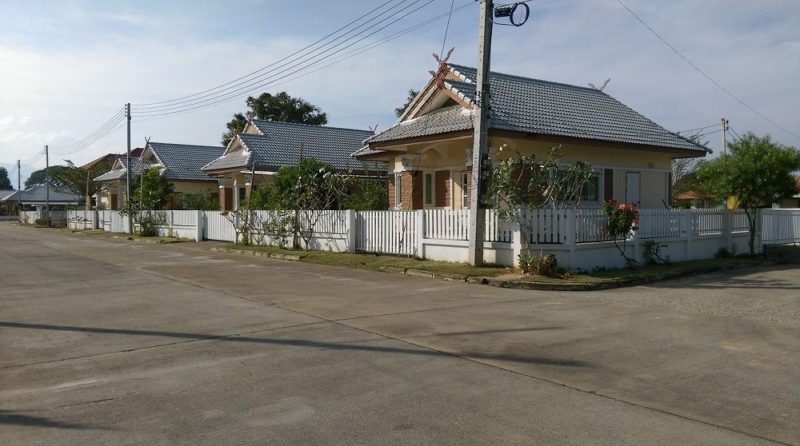
If you live outside of the city area, you can pay less than THB10,000 a month and get a big house in Chiang Mai.
Read more: Renting a House in Thailand? Read This Before Signing That Lease
Condos
There are still plenty of good condos for under THB10,000 per month in the center of the city. Most of them have a balcony, and some of them offer views of Doi Suthep. Probably the most famous condo building is Hillside on Huay Kaew Road. In the last 10 years, however, there have been a lot more condos being built, which has now created a glut in the market.
Condos almost always have undercover parking, a swimming pool, a small shop, a laundry shop either downstairs or close by, and security that’s available 24/7. Most tend to have food stalls on the street.
Staying in a condo requires at least a one month’s deposit. But it’s probably the best option for a lot of people. The good thing is that you know what you’re getting, and there’s very few things to worry about, like keeping the property clean, cutting the grass, and trimming bushes and trees.
Read more: A Step-by-Step Guide to Buying a Condo in Thailand
Apartments
Although less common than in Bangkok, Chiang Mai does offer its share of apartments for rent. Apartments don’t come with pools, gyms, or laundry services, but they do offer one thing that condos sometimes don’t — the ability to stay short-term. You can rent an apartment in Chiang Mai for around THB3,500 a month while you travel around and figure out where you want to plant your roots.
The best plan is to talk to people and to do your own research. Unfortunately there aren’t many real estate agent offices open in this current era, but there are lots of websites in English that will make your task easier.
Finding Rental Property
You have a few options to use when looking for a place to rent in Chiang Mai. None is better than the rest, and sometimes finding a place comes down to pure luck. So use each of these choices to increase your chances of finding the ideal place to live.
Real Estate Agents
In Chiang Mai, real estate agents often take you for a tour of the property, which is useful. Once there, you can judge for yourself whether you want to move in. You also don’t have to pay for real estate agents most of the time, as they get a commission for the property owner.
Real Estate Agents in Thailand
Find Thai Space
Find Thai Space is a real estate agency in Bangkok that can help you find a place to buy or rent throughout the capital of Thailand.
Contact Find Thai SpaceFacebook Groups
Facebook can be a good method for finding a place to rent in Chiang Mai. Most of the places listed on Facebook are posted by owners, which means you deal directly with them and not a middle person. Property owners also don’t have to pay commission to real estate agents, so they are more likely to lower the rent. This helps you when negotiating prices.
To find a place to rent using Facebook, try one of these links below:
- Apartments for rent near Chiang Mai, Thailand
- Houses for rent near Chiang Mai, Thailand
- Property for rent near Chiang Mai, Thailand
- House for rent in Chiang Mai
- Chiang Mai Rental Properties *UNDER* 10,000 Per Month (budget friendly)
Property Websites
The next option is to look at property websites. Have a look at their listings first to narrow down your choices, then start reaching out to the contacts listed. You can usually call the listed agents, which is the easiest way to get in touch with them. If you send an email, they may not respond. Keep in mind that some websites contain outdated info. For instance, even if a place is not available, it might show as such. Nevertheless, these websites are great places to see what’s out there.
Walking Around
Believe it or not, you might be able to find a place to rent while walking around a neighborhood that you like in Chiang Mai. Property owners still put for rent signs in windows and on balconies. But usually, people who go this old school route are from the previous generation and may not be able to speak English (yet another good reason to learn Thai now).
So get a friend who can speak Thai to call the owner for you. The downside to looking around in person is that it can take a long time to find something you like.
Read more: Underrated Neighborhoods in Chiang Mai (Unlock this premium guide now)
Legal Considerations
Renting is an ideal option for expats because by Thai law, we can’t buy land in Chiang Mai (or anywhere in Thailand) under our names. But even when renting in Chiang Mai, you should consider some of these minor legal matters.
- Valid passport: In order to rent a place in Chiang Mai, you need to have a passport that is valid for at least another six months. Property owners and managers are required to report your details to the government.
- Security deposits: Generally, the minimum deposit is one month, but some may ask for a two month deposit.
- Language: You may need to sign a lease in both Thai and English, but it’s important to remember that the Thai version is the official version. Get a trusted friend to read it over for you.
- Damage: You are liable for any damage to the apartment. Most times, the cost to repair the damage is deducted from your security deposit.
- Complaints: Some multi-unit buildings have a committee. You can go to the committee to voice any concerns about noise, garbage, or security. But you never want to be the one being complained about.
Pet-Friendly Places to Rent in Chiang Mai
Pets are not welcome in most condos in Chiang Mai, but if you rent a house then it should be okay to bring your dog or cat. Just clear it with the owner first. That said, if you have your heart set on a condo, these three buildings are known to allow dogs or cats. Their policies could change at any time, so it’s always best to call or visit and talk to someone at the front desk.
Read more: How to Buy or Adopt Dogs, Cats, and Exotic Pets in Thailand
Renting in Chiang Mai with a Family
Families will feel welcome in Chiang Mai, as it’s an ideal city to raise a family in. There is also a range of schools from public to private to international, and there are plenty of outdoor activities to take part in.
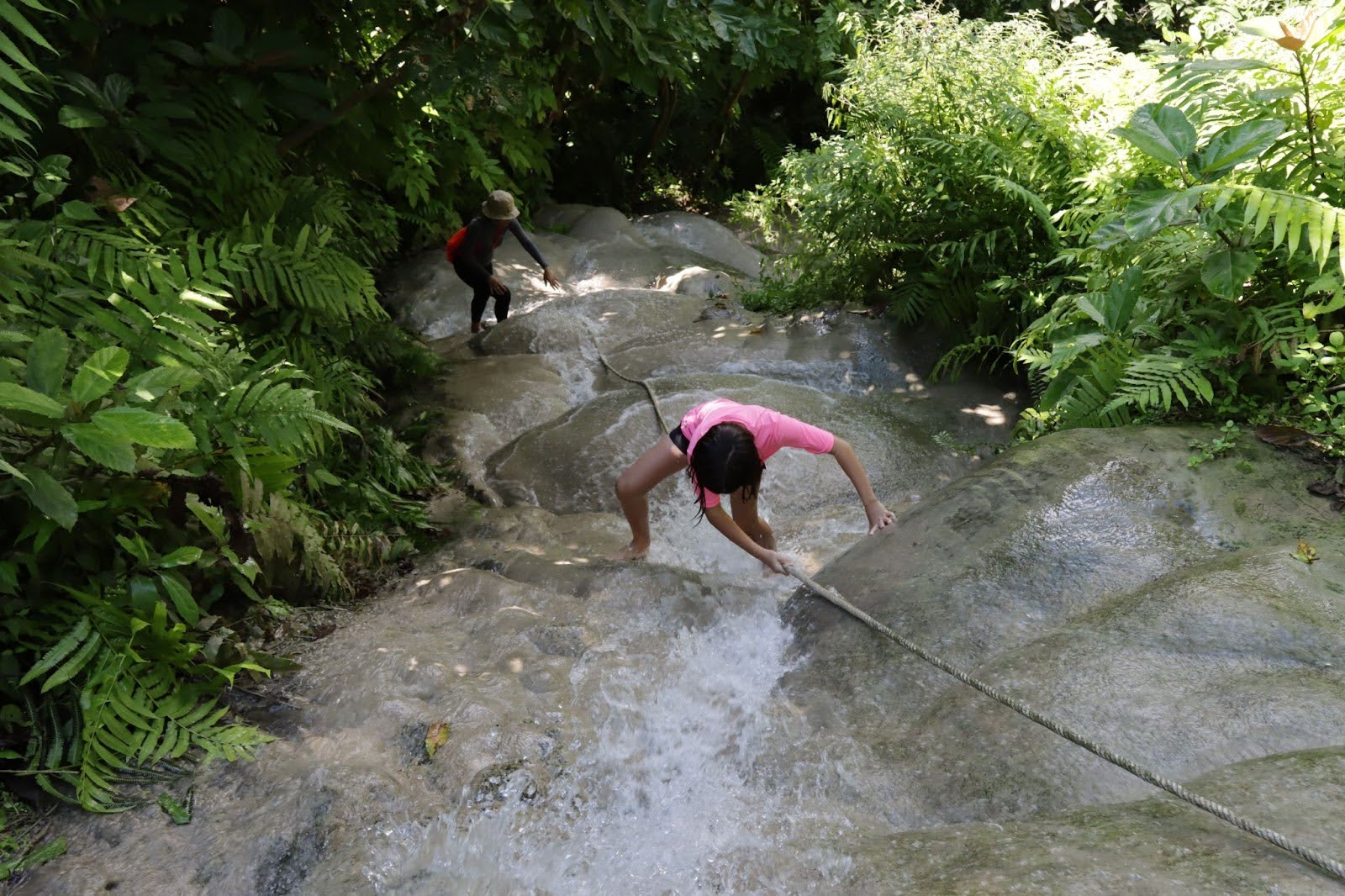
International Schools and Universities in Chiang Mai
Chiang Mai is home to some of the most prestigious international schools and universities in Thailand. International Schools Database lists all of the top international and bilingual schools in Chiang Mai, the grades they cover, and how much the tuition costs.
As for universities, Chiang Mai University is one of the top educational institutions in Thailand for medicine, agriculture, computer science, and more. It’s often ranked on top 10 lists for Asia.
Maids, Nannies, and Gardeners
If you rent a big house in Chiang Mai with your family, it might be worth hiring a maid, a gardener, or a nanny. Your real estate agent or landlord probably knows people who are prepared to do this work for you. Make sure to lay out your expectations. A wage of around THB200 to THB300 per hour is considered fair in Chiang Mai.
Having a maid can also be useful for doing errands, such as shopping and picking up the children from school. Three websites you can search for nannies in Chiang Mai are:
Now, on to You
Finding a place to rent in Chiang Mai might take some time, but once you find a suitable home you’ll be glad you went through the effort. Chiang Mai is a wonderful place for singles and families, with plenty to offer in the way of outdoor activities, schools, and more.
Just be sure to know what you’re getting into before you sign a lease, and use the practical tips in this guide as help.


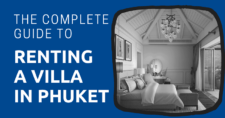


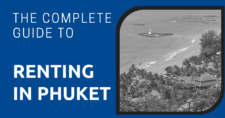
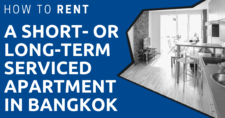
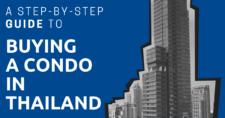
A photo of a house in the houses section was nice. A map of Chiang Mai showing the named districts in the “Where to Rent in Chiang Mai” section … would’ve been nicer 🙂
Thanks for the guide though, interesting reading.
Great suggestions. Thanks for this!